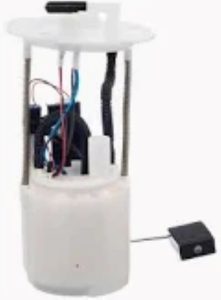This results in improving the engine performance by increasing the volume of fuel sent to the engine. For example, some high-performance fuel pumps can deliver 340 liters per hour (LPH), that's well above the average OEM pump. This improves combustion which in-turn increases horsepower and torque, especially for turbo or super charger engines. Many tuned cars that receive a fuel pump upgrade will even cut their 0-60 mph time down by as much as 10 percent.
If you have a modified vehicle which draws more fuel to meet the needs of increased horsepower, a wise move is to get an upgraded fuel pump. The stock fuel pumps tend to run out of steam at around 400 hp. Nonetheless, if an engine is tuned reliably over 600-800 horsepower then a stronger fuel pump is still required to keep the pressure in acidity. Failure to do so can lead to detonation and cause engine failure from fuel starvation.
In addition to increasing power output, a more efficient fuel delivery system will increase fuel efficiency too. Counterintuitive as it sounds, high-flow fuel pumps can make a big difference here by ensuring plenty of gas is delivered even under load so you dont run rich or lean and waste gas. On the performance side of things, it is not uncommon for some enthusiasts to report a 5—10 per cent increase in fuel economy after upgrading their pump (especially so if paired with injector and fuel line mods).

One extremely important element in motorsport is fuel pump reliability. For example, endurance racing teams lean on high capacity and trustworthy fuel pumps during the 24 Hours of Le Mans to sustain performance for long durations. The costs of such a pump failure during the middle of a two days event it not only cost the team a race but also millions in sponsorship and prize money. Which is why fuel pump upgrades are unavoidable for any high-stakes performance vehicle.
Another biggest advantage you get is a fuel pump upgrade life span. Most modern performance fuel pumps, such as Walbro and Bosch units are built to a life expectancy of 100k miles under normal operation. For vehicles with modified engines especially, this is incredibly beneficial, as they can avoid having to replace their rotors every couple of months and save them hundreds on maintenance in the long run.
This improves throttle response as well since it means no drop to the quarter tank limit unless you'd be doing so at full noise anyway. This enables the engine to deliver power smoothly and instantly when accelerating at maximum fuel pressure. This is most apparent when the car gets to a race track or is driving at high speed where accuracy and response counts.
Improving the fuel pump is also generally regarded by performance tuners and often suggested by aftermarket performance suppliers. A recent report from the Specialty Equipment Market Association (SEMA) revealed that the worldwide automotive aftermarket was worth more than $400 billion and upgrades to fuel systems substantiating a large percentage of this at both an OEM and after market level. With car designs becoming more sophisticated and engines able to generate more power than ever, the demand for high-performance fuel pumps will only grow.
For additional information on Fuel Pumps and their upgrades please visit Fuel Pump.
